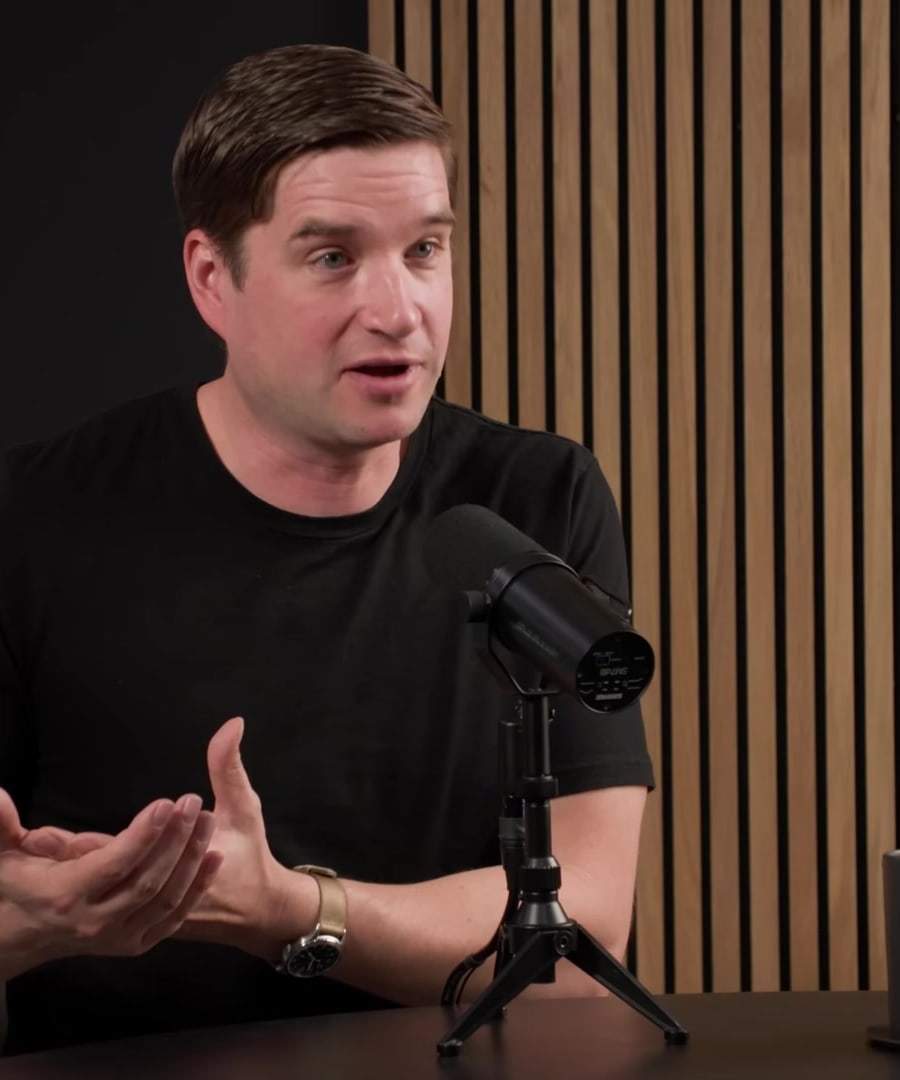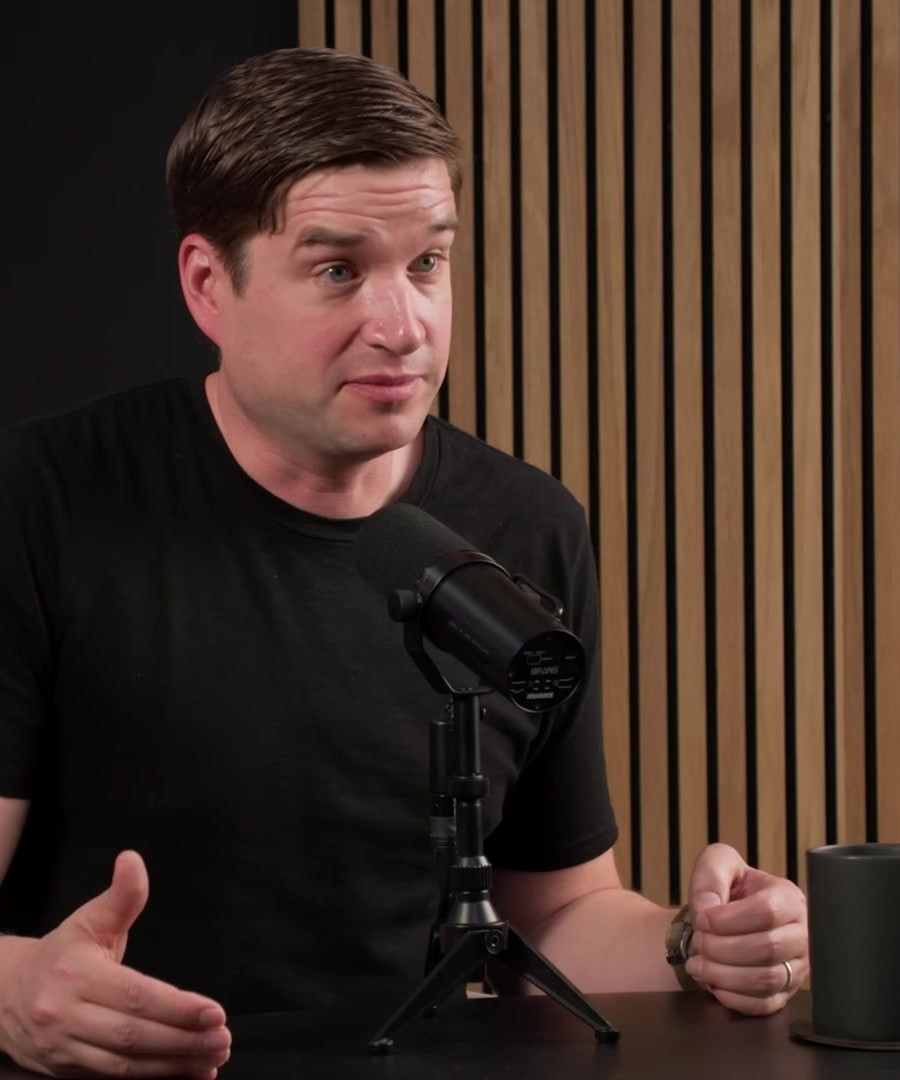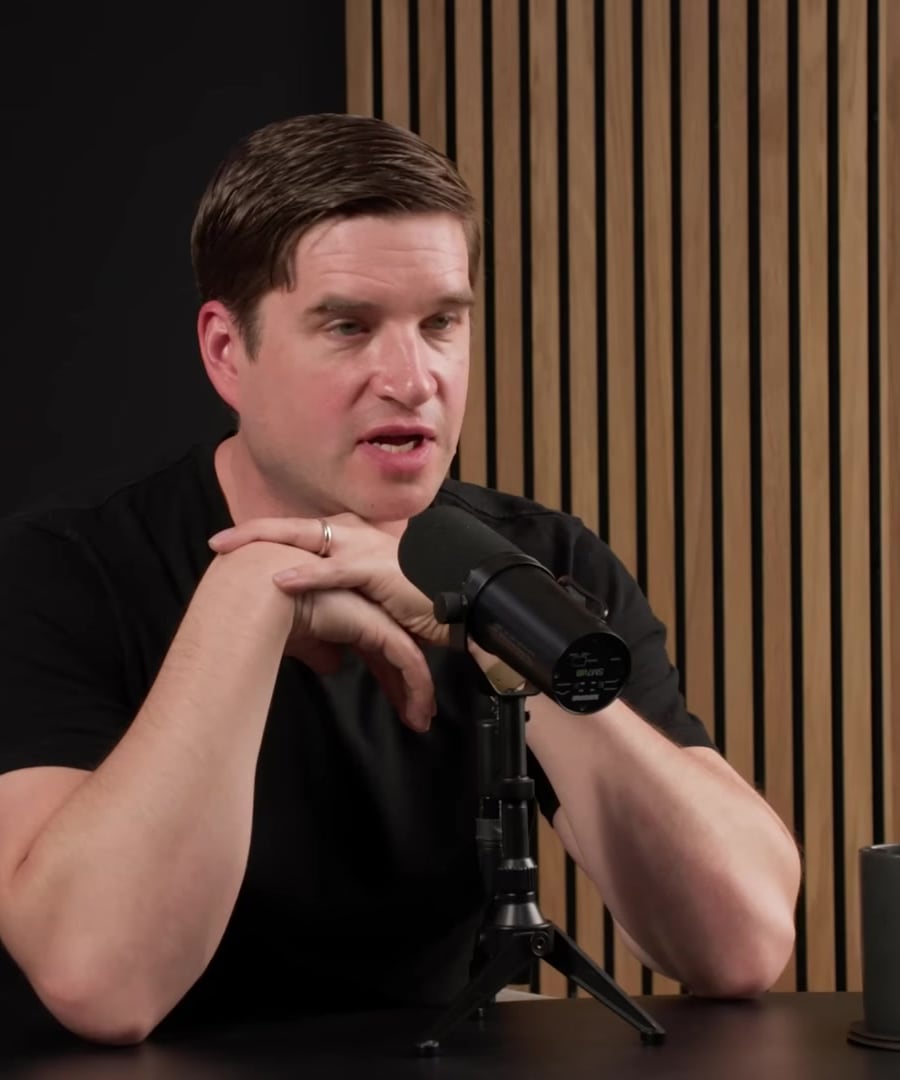Tell me about Cal Newport
Sources:
is an American nonfiction author and associate professor of computer science at Georgetown University. He is renowned for his work on technology and how it affects our productivity and daily lives, notably through books such as "Deep Work" and "Digital Minimalism".
RELATED QUESTIONSList books written by Cal Newport.
Sources:
Here are books written by as mentioned in the Huberman Lab podcast:
- "Deep Work: Rules for Focused Success in a Distracted World" - This book is highly recommended for its insight into achieving high-quality work without distractions 1.
- "Slow Productivity: The Lost Art of Accomplishment Without Burnout" - This book addresses how to maintain high-quality work over time without experiencing burnout, providing specific protocols 1.
RELATED QUESTIONSCan you provide insights or quotes from Cal Newport on the topic of deep work and productivity?
Sources:
provides essential insights into "deep work" and productivity. Here's a summary of his thoughts:
-
Distinction Between Flow and Deep Work:
- Newport clarifies that deep work and flow are quite different. Flow is seen as a state of performance, not the state during deliberate practice or learning. He emphasizes that deep work involves struggling through tasks that are beyond your comfort zone, which he considers crucial for making progress in cognitive or creative pursuits 1.
-
The Role of Deep Work:
- According to Newport, deep work is not just about being busy; it's about engaging with complex tasks that require unbroken concentration. This form of work can leverage your cognitive capabilities to their fullest extent, leading to significant achievements and mastery over time 2.
-
Productivity Strategies:
- Newport discusses strategies for maintaining productivity despite various challenges. He shares a structured approach to balancing deep work with other responsibilities, stressing the importance of allocating at least 60 to 90 minutes for deep work on most days 3.
-
Long-Term Thinking:
- He advocates for focusing on long-term goals and consistency. Newport emphasizes that the impact of deep work accumulates over time, influencing his view on productivity as a decade-long game rather than daily achievements 4.
These insights provide a framework for understanding how deep work differs from more casual or even creative tasks, emphasizing the importance of focused, undistracted intellectual labor for significant productivity and learning.
RELATED QUESTIONS-
What are Cal Newport's recommended habits for improving productivity?
Sources:
offers various habits and strategies to enhance productivity, focusing on creating meaningful routines and managing distractions effectively. Here are some of the key habits he recommends:
-
Boundary Management:
- Newport emphasizes the importance of setting strict work boundaries to maintain productivity. He practices fixing his schedule and not working outside of these allocated times. This approach forces innovation within constraints, making you find ways to get your crucial tasks done within the set boundaries 1.
-
Prioritization of Deep Work:
- He advocates for focusing on deep work, advising to prioritize tasks that require your full cognitive capabilities. Newport suggests ensuring that you engage in high-intensity, focused periods of work regularly, as these are more likely to produce substantial outcomes 2.
-
Slow Productivity:
- Newport introduces the concept of "slow productivity," where the focus is on outcomes over a longer period rather than immediate results. This approach is particularly beneficial for individuals facing challenges like irregular sleep patterns, as it allows them to remain productive without stressing about daily outputs 1.
-
Physical and Mental Health:
- He also highlights the importance of incorporating physical exercise into daily routines, noting its psychological benefits and how it facilitates the transition from work to personal time. Additionally, maintaining a routine sleep schedule forms part of his strategy to support sustained productivity 1.
-
Limiting Distractions:
- Newport advises on minimizing distractions by managing how tech tools are used—like emails and messages—which can often disrupt deep work sessions. Effective management of these tools can significantly reduce cognitive overhead, allowing for prolonged periods of concentrated work 3.
These habits pave the way for not just short-term efficiency but also long-term effectiveness and satisfaction in both professional and personal domains.
RELATED QUESTIONS-
How does Cal Newport suggest we manage our time for optimal productivity?
Sources:
suggests managing time for optimal productivity through structured and strategic planning, focusing on controlling how one's time is distributed across various tasks. Here are some of his main recommendations:
-
Multi-scale Planning:
- Newport endorses planning at multiple scales—daily, weekly, and quarterly—to ensure alignment of daily activities with longer-term goals. This approach helps visualize tasks and deadlines to structure daily work effectively. Keeping tasks aligned from larger goals down to daily activities ensures consistency and focused effort toward significant objectives 1.
-
Time Blocking:
- Instead of relying on to-do lists, Newport prefers time blocking. This method involves assigning specific tasks to precise blocks of available time during the day. It helps in harnessing one’s focus and limits the decision fatigue associated with constant choice of what task to handle next 2.
-
Fixed Schedule Productivity:
- A cornerstone of Newport's philosophy is maintaining a fixed schedule to stabilize work hours and ensure not working outside these times. This constraint fosters efficiency and innovation within the set work hours, avoiding the trap of overworking 3.
These strategies focus not just on doing more, but doing what matters efficiently and effectively, maximizing productivity within the constraints of time.
RELATED QUESTIONS-
Tell me about Cal Newport
- RELATED QUESTIONS
List books written by Cal Newport.
- RELATED QUESTIONS
Can you provide insights or quotes from Cal Newport on the topic of deep work and productivity?
- RELATED QUESTIONS
What are Cal Newport's recommended habits for improving productivity?
- RELATED QUESTIONS
How does Cal Newport suggest we manage our time for optimal productivity?
- RELATED QUESTIONS









